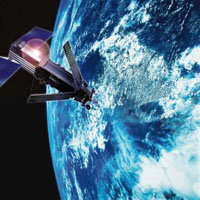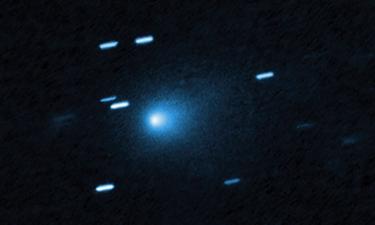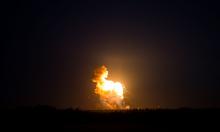Japan establishes network of spy satellites
After nearly a decade of trying, Japan has succeeded in establishing a network of spy satellites that can peer in on any point on the globe once a day, officials said Monday.

The successful launch Saturday of the fourth and final satellite in the spy network significantly boosts Japan's ability to independently gather intelligence on trouble spots anywhere on the globe, and re-establishes Tokyo as a major player in Asia's accelerating space race.
Previously, Japan had to rely more heavily on its main ally, the United States.
"I welcome the success of the launch, and I hope Japan's space program will mark results that are appropriate for a leading nation in space," Prime Minister Shinzo Abe said in a statement after the satellite successfully lifted off aboard an H-2A rocket from a space center on the remote island of Tanegashima.
The spy satellite program, started after North Korea launched a ballistic missile over Japan's main island in 1998, has been riddled with delays and setbacks - including a spectacular mid-air explosion just over three years ago and problems with the probes' optics.
But officials on Monday said the satellite had attained its orbit and was functioning without problems. A prototype for future, more advanced probes was also launched aboard the rocket.
"The satellite will undergo a three-month test period," said Yasuhiro Itakura of the Cabinet office in charge of the program. "But it is functioning fine so far."
The launch, which was delayed three times because of bad weather, reaffirms Japan as one of Asia's top space powers. Officials stress the Japanese-designed-and-built H-2A rocket has a better than 90 percent success rate in its 12 launches to date, which is comparable to other advanced countries.
Tokyo needed the boost.
Shortly after its second spy satellite launch was aborted in a fireball in November 2003, China put its first astronauts in orbit, establishing itself as the leader in Asia's push into space.
North Korea in October tested its first nuclear device, China last month blasted a satellite out of orbit with a ground-based missile and, just last week, Pakistan tested one of its most advanced long-range missiles. India, meanwhile, is making rapid advancements in its rocket development and has announced plans to shoot for the moon.
The competition has had a deep impact on Japan's overall goals in space.
Though Tokyo's intelligence-gathering satellites are under civilian control, Japan's ruling party proposed late last year that the military be allowed to use the country's space program. Since 1969, Japan's space program has been limited to peaceful uses.
The new proposal would change that, but restricts military use of the program to self-defense.
Japan, following China's lead, is also mulling the possibility of manned space flight. It has yet to send astronauts into space on its own, though Japanese have joined in U.S. Space Shuttle missions, the AP says.
"With China planning a moon mission and rapidly improving its space program, Japan is at a crucial stage," The Nikkei, a major business daily, said in an editorial. "We must continue to have successful launches."
Japan's immediate future in space is somewhat shaky, however.
Saturday's launch was the last for the H-2A that will be conducted by JAXA, the government space agency. Future launches of the rocket, the workhorse of Japan's space program, will be taken over by the private sector.
Although Japan's spy satellites have been slammed by critics as too weak - the quality of the photos they provide is far worse than their U.S. counterparts - the improved version isn't due for launch until 2009, after the first two satellites complete their planned five-year lifespan.
Subscribe to Pravda.Ru Telegram channel, Facebook, RSS!





